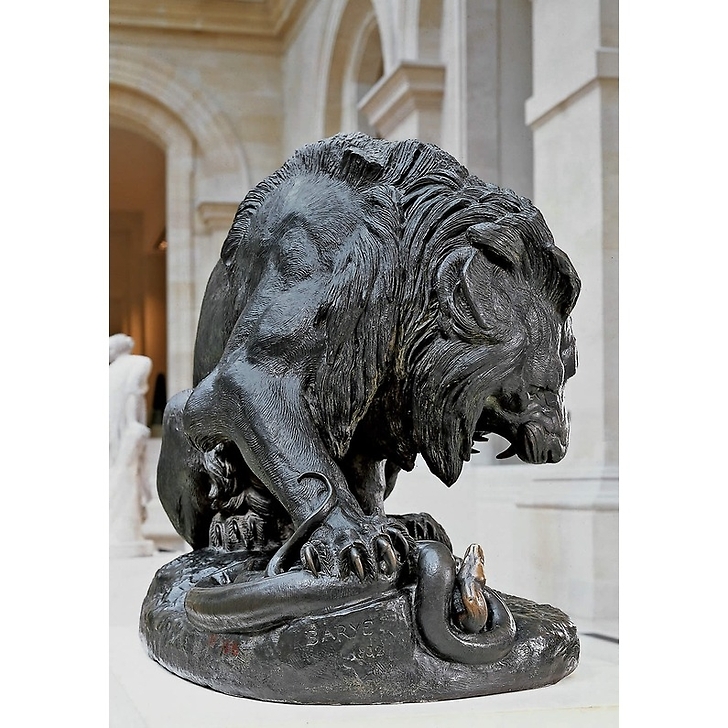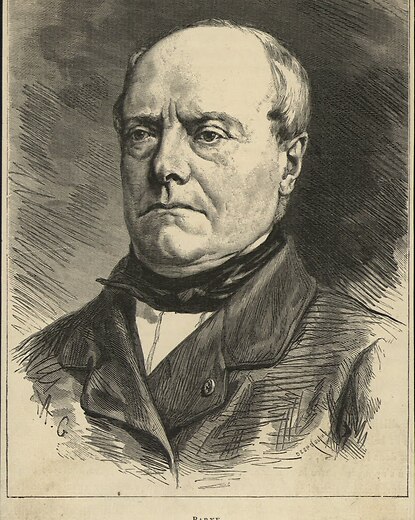Son of a Parisian goldsmith, Antoine-Louis Barye (1795-1875) began his apprenticeship in an engraver's workshop and continued with the goldsmith Bicunais from whom he learned the different stages of metalwork, from melting to chiselling. From this hard apprenticeship, he retained the precision of line and the sharpness of drawing. In 1816, he entered the workshop of the sculptor Bosio, and in 1823 of Fauconnier, goldsmith of the Duchesse d'Angoulême; there he started modelling figurines of small animals. It was then that he studied animals at the "Jardin des Plantes", observing their attitudes and movements. His desire to treat in sculpture the animal for its own dramatic values brought the artist violent criticisms. Barye's style remained unique and this form of romanticism in the sculpture of animals would not be found again. Attracting little esteem from official circles, Barye ceased exhibiting at the Salon after 1837. But many wealthy amateurs, such as the Duc d'Orléans, took interest in his non-academic form of art. The bronze production of his small sized works ensured his success with a large audience.



